Oh, the Christmas Party – a pinnacle of ‘learning’ for Crescentians. Naturally, Crescent could have effortlessly spoiled it like their other traditions, opting to schedule the party a mere two days before exams. But alas, Jesus decided to be born on December 23rd, and you know, changing divine birth dates is a bit tricky!
Lesson numero uno: “Sharing” takes away anxieties
Before you try to get elevated ideas in your mind around sharing ideas, opinions, or mundane things like money, the sharing revolves around food. Yes, food! Why spend money on catering services, chefs, and logistics of getting raw materials, cut vegetables, and tools like LPG cylinders and large cooking vessels? When you can get home-cooked food delivered ready-made for the party. Picture this: students are meticulously sorted into groups. By meticulous, it means each classroom has four columns of benches, each column is assigned with the crucial mission of bringing a specific dish from the comfort of their homes.
Young adult movies, web series, and serials showcase the anxieties of children and teenagers around their appearance, dress, etc. for school parties. Crescent took away all such concerns. Forget the morning jitters about attire or appearances; the Crescentians’ real anxiety is whether those gulab jamuns will be ready on time! Are they packed well, is the syrup fine, and how to transport them? The riveting drama of culinary concerns overshadowing the superficial ideas of looks and appearance. You can reach the party in a torn jacket and bata chappals and pass it off as style, but you better be there with a ‘dabba’ of jamuns.

Supplementary Lesson : Generalization May Lead to Prejudice
The concept of sharing does not stop giving lessons! Another lesson you learn is there are no generalizations in life. Let’s look at the most common example of a general statement, “All women are bad drivers.” This statement is definitely untrue, incomplete, and misleading as it lacks information and context. Information that some boys are also bad drivers.
Similarly, at the party, you cannot blurt out a general statement, “Oh! the gulab jamuns are not good.”
You cannot say that because ten students got the hundred jamuns from their home. Once mixed, you cannot distinguish which jamun came from where. Perhaps, the jamuns from Ravi’s house were not as good as those from Yogesh’s. But then you also have to account that the jamun on Sammer’s bicep is bigger than your own calf muscle!
Blurting out generalized statements in such a situation might be highly injurious to your well-being.
Ironically, when this conundrum was staring me in my face, Prasad from our class was singing, “nadi mile sagar me, sagar mile kauno jaal mein, koyi jaane na.” And Vikram was getting ready to perform a “break” dance

Lesson 2: Yeh Desh Emotion Pe Chalta Hai
I see people, not the ‘Sixth Sense1‘ kind, just your average folks proudly donning a tag that screams ‘Happy Thoughts’ on their collar or pocket. I bet that the genius who kickstarted this trend must’ve been a Crescentian.
Now, picture this at the Christmas party: After encountering jamuns that taste like, well let’s not go there because of the risks listed earlier, you embark on a friendly investigation to discover that the ladoos are supposedly the real deal on the menu. You cautiously approach, take one in your hand, and with bated breath, close your eyes, wide open mouth, already salivating, expecting a taste bud symphony… IT CRUMBLES.
The ladoo disintegrates just before reaching your eagerly waiting mouth. Just as you’re on the verge of unleashing a poetic barrage starting with “Maa ki,” someone chimes in with, “Kisi ki Maa ne bahot pyar se banaye hoge, isliye itne soft hue hai” (“Someone’s mother must have made them with a lot of love, that’s why they’re so soft”). Oh, sweet mother…
(I should probably check if Prasoon Joshi graduated from the school of Sarcastic Wisdom at Crescent or something…)
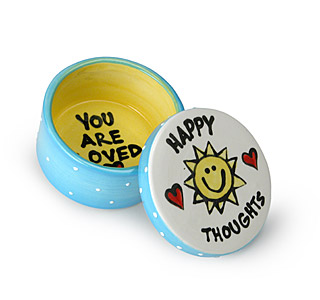

Lesson hamari zindagi bhi hamare hindi filmon ke jaisa hi hai : Kehte hain agar kisi cheez ko agar dil se chaho to saari kayanath tumhe usse milane ki koshish me lag jaati hai
Ah, Christmas – the festive tree adorned with glitter and a cascade of gifts around it, creating the perfect holiday picture.
We can certainly conjure up a tree on the chalkboard, meticulously decorating it with a burst of colors (green, blue, and a touch of pinkish-red chalks, mind you). But what about the cascade of gifts? Buy them and distribute? Oh no.
The student is already bringing a ‘dabba’ from home, how heavy can it be to tag a color paper-wrapped box alongside? The riveting tradition unfolded where each student graced the occasion with a gift. These gifts were then tossed into a magical box, stirred and mixed like the jamuns, and a lottery was conducted to determine who got what. Years later, I got to know that the corporate world uses the same idea, conveniently branding it as “Secret Santa.” And, like in the corporate world, there is nothing ‘secret.’ At Crescent, nothing was a ‘secret.’
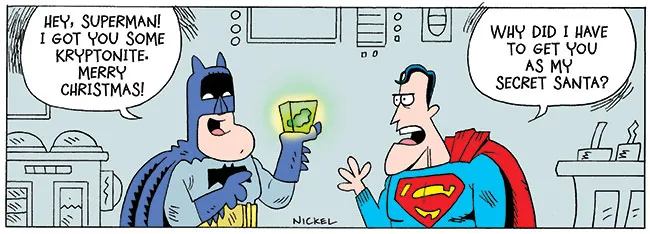
Now, visualize this sidesplitting spectacle: eager students (boys.) Well, desperate might be a better adjective than eager in this case. The lucky lotto winner receives a gift from his person of interest (POI.) In spoken language, it is referred to as ‘Crush,’ But I am confused about the ‘verb’ usage of the word. Do you ‘have’ a Crush, or is somebody your Crush, or are you ‘Crushing’ on someone? Hence, I prefer POI – technically sound and devoid of confusion. (Yes! No need to ponder, having graduated from Crescent, I’ve embraced the ‘technical’ side of engineering.)
Anyhow, let’s get back to our riveting scene. Our lottery winner, our chocolate hero, receives a gift from his POI. He approaches her, using the gift as an ultimate icebreaker. A probing ‘What is in the box,’ or a pragmatic ‘How to use this,’ or a whimsical, ‘Is it a book or a game.’ Some ventured with a highly philosophical, ‘What does this mean.’
My friend, who cannot be named here (his bicep jamun and my calf still share the same relative relationship), got a large bar of white chocolate wherein the girl had missed the memo of wrapping it in colored paper. This genius of a boy, with a white bar, with Nestle Milkybar printed in bold, approached his POI and fired off all the icebreaker questions in neat order. From ‘What’ to ‘How to use,’ he skillfully landed on the grand finale, ‘What does this mean.’
When you are not eating your green leafy vegies, your mom shouts at you, ‘Eat it’ Just recollect the loudness of your mother’s voice. Now multiply it by a factor of at least five.
” EAT IT, that’s what is means. Eat it and finish it. If you are not going to eat it, give it to your friends. IDIOT”
At that point, you would have struggled to determine which was more ‘pale white,’ the Milkybar or my friend’s face.
Well, to be fair, it will not be fair to mock my friend. Ignore the double fair, and understand that it was not his fault. Since, childhood he was brought on a cocktail of fate, destiny, and karma stirred up in a Bollywood shaker.
“Kahin na kahin, koi na koi mere liye banaya gaya hai … aur kabhi na kabhi main usse zaroor milongi”
Hence, that poor soul of a boy naturally thought that since the chocolate had travelled to him from her, it was God working his mysterious ways to bring them together. After his bashing, my friend was lost in thoughts about understanding his destiny, and as a duty-bound friend, I was ready to lessen his burden. I must say, even though white chocolate is not ‘real’ chocolate, it doesn’t taste that bad. That day I realized that God was working his way to ensure that a guy who got a particularly odd gulab jamun, and a crumbled ladoo on his shirt, did not go home empty stomach.

A small footnote here : Please do not mind about the fact that the lottery was rigged for the desired outcome!
Lesson Geek: Crescentian’s dilemma
Let me first explain the lesson title with a little ‘Reference to Context.‘ The Prisoner’s Dilemma is a famous problem in game theory. Two suspects are arrested, but the police lack sufficient evidence to convict them on a major charge. They can, however, be convicted on a lesser charge. Each suspect must decide whether to cooperate with their partner by remaining silent or betray the other by confessing. The outcome depends on the choices made by both individuals.
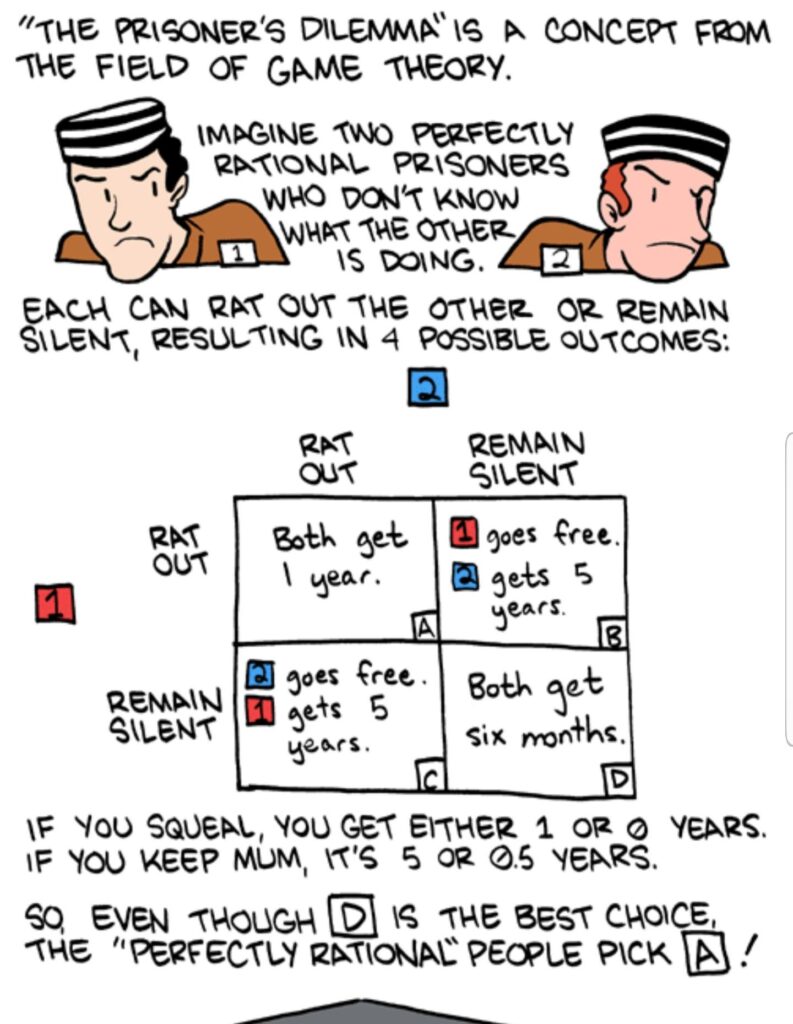
Well, well, for those of you who cannot flaunt your nerdiness in the game theory club, here is a more relatable context, a cinematic context – because clearly, movies are where the real-life lessons happen, right? We are talking about another movie in which ‘one sees people,’ – A Beautiful Mind,2 it stars none other than the Gladiator.
Now, onto the Crescentian’s Dilemma – a real brain teaser for the fashionably challenged gift-givers among us.
So, here’s the plot twist: If I splurge twenty whole rupees on a gift and get back something worth a whopping ten, I’m in the red zone – a ten-rupee loss. But wait, if the universe decides to shine on me and I end up with a thirty-rupee gift, oh joy, I make a grand profit of ten. Now, here comes the cliffhanger – how much should I splurge to avoid becoming the punchline. Becasue, if I buy something very cheap compared to the class, then I get ridiculed for being a miser. If I buy something expensive in comparison, then I get ridiculed for being stupid. Decisions, decisions – what’s the ‘perfectly rational’ choice?
Solving this high-stakes puzzle requires Einstein-level thinking, Sherlock-level data collection, and some Wall Street-level market analysis (all crucial life skills, obviously). It’s like playing poker in the dark – you don’t show your cards, but you try to peek at everyone else’s. Try to gauge the average going rate of gifts and buy one closer to that range. This way, you’ll either get ‘thodi khushi’ or ‘thoda hi gum.’
But hold on, because here’s where the Crescentian prodigies step in. These gifted minds make the world’s best game theorists look like amateurs. They crack the code by buying a gift for Rs. 15, tricking everyone into thinking it’s worth Rs. 30. They get a return gift of Rs. 25, making a personal profit of Rs. 10, all while proudly flaunting a public loss of Rs. 5. And on cue, they blurt out a cinematic dialogue, “Arre kya hua paanch rupaye ka loss hua, sab apne hi dost hai yahan, kya tera, kya mera… khali haath aaye the hum, khali haath jayenge.”
Drum roll:End Credits
As the curtain falls, some lucky souls strut home with the smug satisfaction of turning a profit on their gift investments. They’re basically the financial wizards of Crescentian society. Meanwhile, there’s the tragic bunch nursing their wounds, calculating losses. Ah, the harsh reality of the gift market.
Then there’s the peculiar breed who finds joy not in monetary gains but in the delightful chatter with their POI. They feel that they had some deep conversations, little do they realize; their POI might be thinking, “Is this person for real or just a walking, talking enigma. How can anyone be so dumb?”
And there are those who are just coasting through the whole charade, casually observing the drama unfold like a spectator at a cricket match – mildly amused but not deeply invested. Oh, the bliss of being a bystander.
In the midst of all this, each class does have one or two Christian students. They also enjoy the party with their Hindu and Muslim counterparts, Sikhs join the festivities, and you’ve got Marvadis, Gujratis, Sindhis, Mallus, sometimes Somalians, Africans, Europeans. (okay, maybe I’m pushing it a bit)
But in that moment, we’re all just a bunch of kids, reveling with our teachers. No homework haunts us, no books open their judgmental pages, no tests lurk around the corner. I’ll take a bad gulab jamun over a bad mark in an English paper any day – now that’s a bet I’m willing to make!

Footnotes











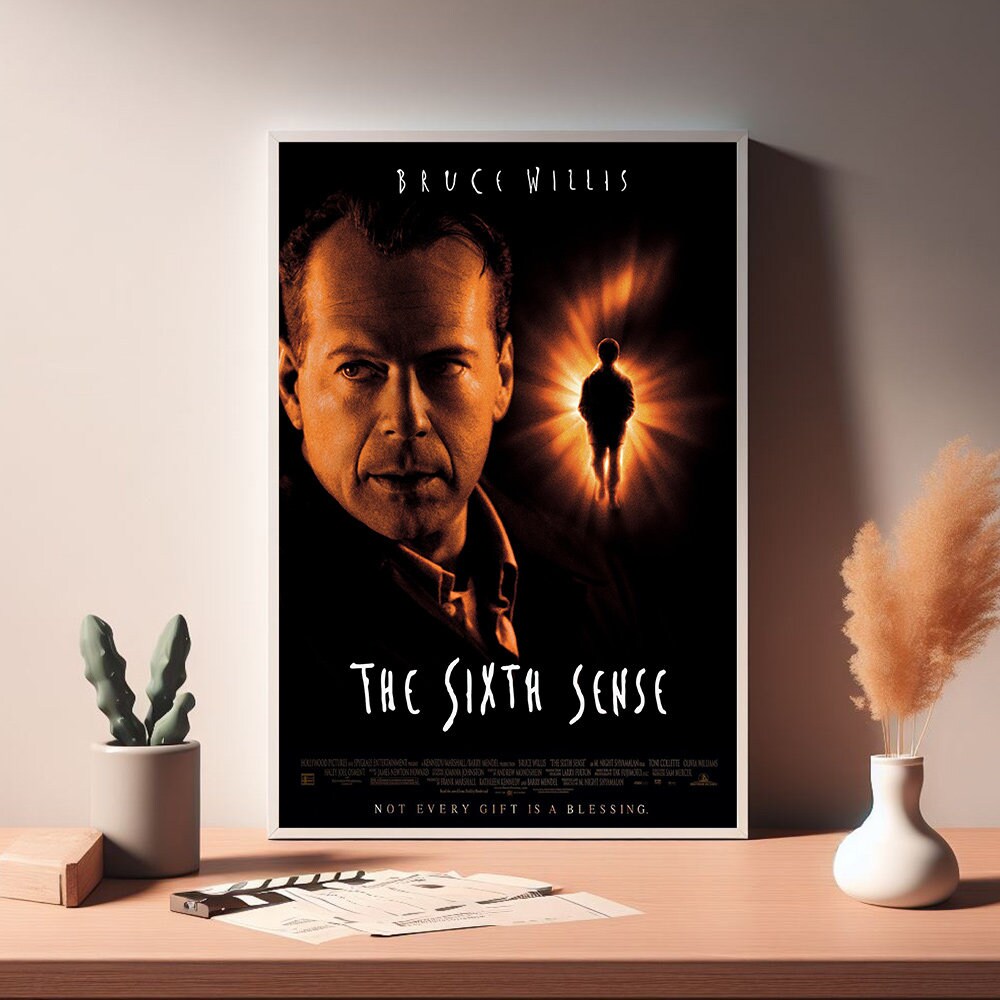
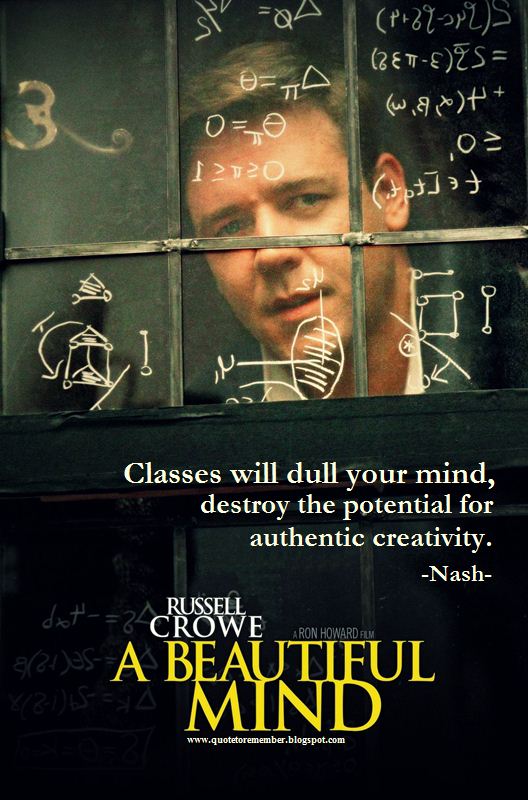



No Comment